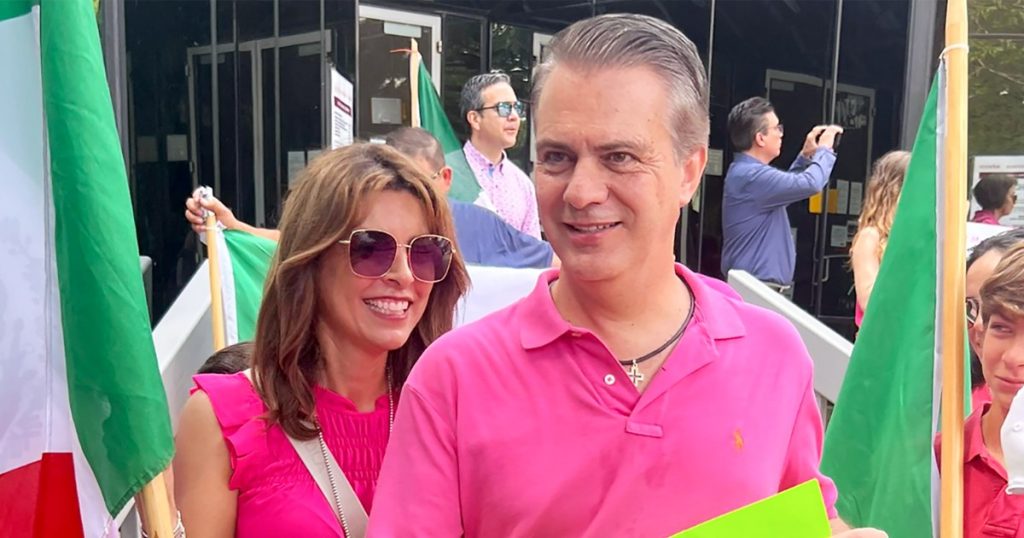Mexican Americans living in the U.S. are preparing to participate in Mexico’s national elections, with over 675,000 of them registered to vote. The majority of them live in the U.S. and have the voter identification needed to take part in the election. While their numbers may seem small compared to the total registered voters in Mexico, experts emphasize that they are still significant. Mexican Americans have been participating in the election by voting by mail, online, and in-person at selected consulates. This demonstrates a growing interest in engaging these voters and strengthening the ties between Mexico and the U.S.
The upcoming election will influence Mexico’s future by determining whether to strengthen traditional government structures or reform them entirely. Claudia Sheinbaum, the presidential candidate from the governing party Morena, has focused her campaign on ensuring continuity on social programs that have helped alleviate poverty and reduce violent crimes. Sheinbuam’s platform regarding issues such as pensions is resonating with voters like Clara Mejía Orta. However, voters like Mejía Orta are also considering the candidate’s potential handling of other issues, like the economy and immigration, before making their final choice.
Remittances sent by Mexicans living abroad are an essential source of income for Mexico, with almost all of them coming from the U.S. Many Mexican Americans see the election as an opportunity to support candidates who have acknowledged and valued the contributions of the Mexican diaspora. Voting for candidates who recognize and leverage the skills and talents of Mexicans living abroad can help further strengthen the economic and social ties between the two countries. Mexican Americans like Jennifer Chavez Ramirez see the importance of participating in the election, as their experiences and voices should be considered on both sides of the border.
The election presents a choice between Morena’s vision of reforming Mexico’s government structures and the Broad Front for Mexico’s argument that continuing the Morena regime could put the country at risk. Traditional political parties have been working to convince voters that reforms are necessary to address challenges such as stalled economic development and high crime rates. With Mexican nationals in the U.S. voting online, candidates are making efforts to engage with these voters and address their concerns. The opposition parties are emphasizing the need for change and presenting themselves as alternatives to the current government.
The emergence of new voting options, such as in-person voting at selected consulates, has allowed Mexican nationals abroad to participate more directly in the election. This change marks a significant step towards engaging the Mexican diaspora in the democratic process. Mexican Americans like Diana Garcia and Juan Hernandez have been actively supporting candidates who they believe represent the change needed in Mexico. Their participation in the election is not only a way to express their views but also to honor the efforts of past generations of Mexican immigrants who fought to amplify the voice of the community, both in the U.S. and in Mexico.
Overall, the involvement of Mexican Americans in Mexico’s national election signals a growing interest in the democratic process among the diaspora. With candidates representing different visions for Mexico’s future and addressing a range of issues from social programs to economic development, voters like Diana Garcia and Jennifer Chavez Ramirez are making informed decisions about who to support in the election. This increased engagement of Mexican nationals abroad demonstrates a commitment to shaping Mexico’s future and strengthening ties between the U.S. and Mexico.


